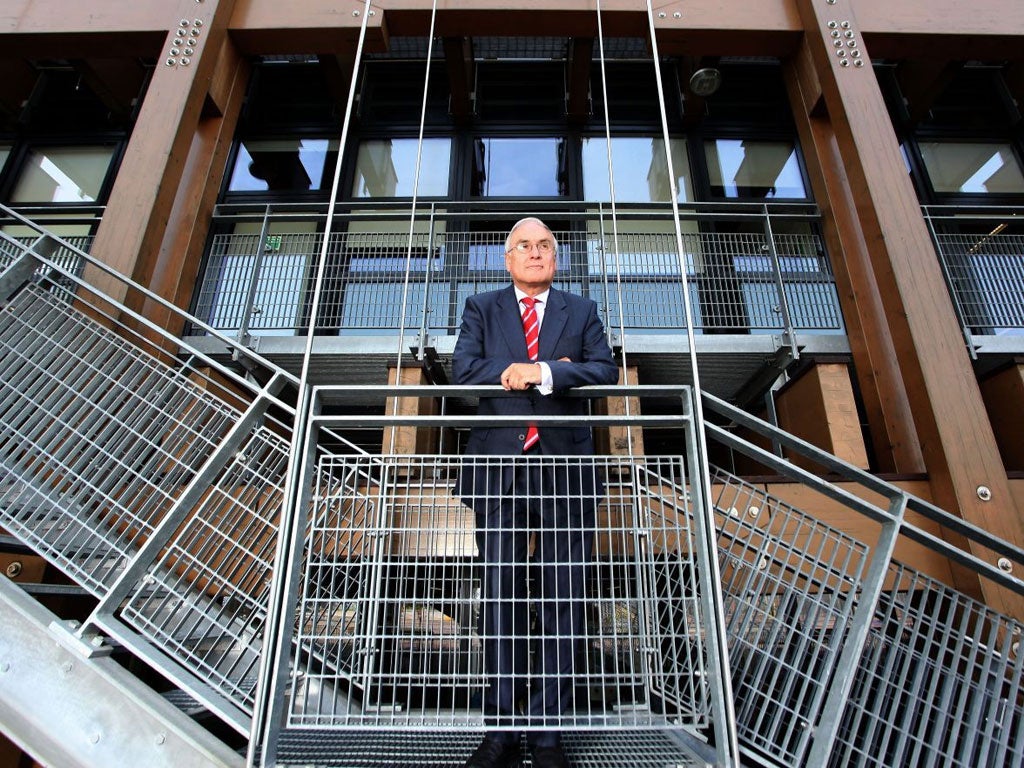‘I blame the parents,’ says chief schools inspector
Teachers say they must counter the ‘quick fix’idea of The X Factor and similar programmes

Lax parenting and a celebrity-driven culture of instant gratification is forcing schools to act as "surrogate parents" for many pupils, the Chief Inspector of Schools has said. Sir Michael Wilshaw said many teachers were being asked to "make up for much wider failings within families" to ensure that their students knuckled down to academic work.
"I have often said that schools in the most difficult circumstances have no option but to be surrogate parents so that children can achieve and I don't retreat from that position," Sir Michael, pictured left, told the annual conference of the Association of School and College Leaders (ASCL) in Birmingham.
"A culture which is sometimes self-obsessed and puts such emphasis on celebrity and self-gratification doesn't ... foster in our young people the essential virtues of effort and diligence which are so fundamental to our success at schools and colleges," he added.
"Our youngsters are too often exposed to double standards – where bad behaviour and violence are publicly condemned but endlessly available as entertainment. As a result, schools are too often asked to make up for much wider failings within families and communities. Too often, children grow up without the family, cultural and community values they need to thrive."
Sir Michael urged schools to "step into the vacuum and make a difference – even if this means being unfashionable, counter-cultural and setting good examples where few exist at home".
Headteachers supported his call for schools to combat a growing emphasis on instant gratification. They highlighted TV shows like The X Factor, which they said convinced children that it was possible to immediately succeed without doing any work.
Joan McVittie, president of the ASCL and headteacher of Woodside High School in north London, said: "Many young people learn their values in school. Sadly some of their parents are unable to provide guidance and often the values provided by their peer groups take precedence over everything else."
She added that instilling moral values in pupils was "perhaps the most important part of our job", as TV talent shows suggested a "quick fix" was all that was needed to be successful.
Brian Lightman, general secretary of the ASCL, also criticised TV soaps for constantly showing people shouting at each other: "Children are faced with a lot of difficult role models these days – not all of which are the most positive. They see examples of celebrity culture on TV with people not speaking the right way and not communicating in a way we would expect people to." He continued: "In many ways schools are the last bastions of these traditional values. We do assert old-fashioned standards and discipline because we see it as our job to teach children in that way."
However, Sir Michael faced criticism from headteachers over the tough stance he has taken on raising standards since he took office 10 weeks ago. He has called for an end to describing schools as "satisfactory" by Ofsted, arguing that "requires improvement" is a better term.
He also wants to see inspectors going straight into classrooms after unexpectedly arriving in schools. Weak heads, he has argued, should face the sack. "I'm not going to say here that everything is wonderful in the garden – because it isn't," he said.
Graham Betts, a headteacher from Leicestershire, warned him of the "corrosive effect" of constant negative statements on education.
Sir Michael said he had taken such a tough stance because he didn't "want to read the same chief inspectors' report that I've seen for the past 10 years – that there is under-performance and mediocrity". He added: "It is quite unacceptable that schools can remain in that satisfactory grade for two inspections – that's six or seven years that children are receiving an education that is less than good."
Earlier, the ASCL produced figures showing that record numbers of heads and senior leaders had been sacked last year as pressure grew to improve exam results. As a result, fewer and fewer deputy heads were willing to step up and seek headships.
Join our commenting forum
Join thought-provoking conversations, follow other Independent readers and see their replies
Comments